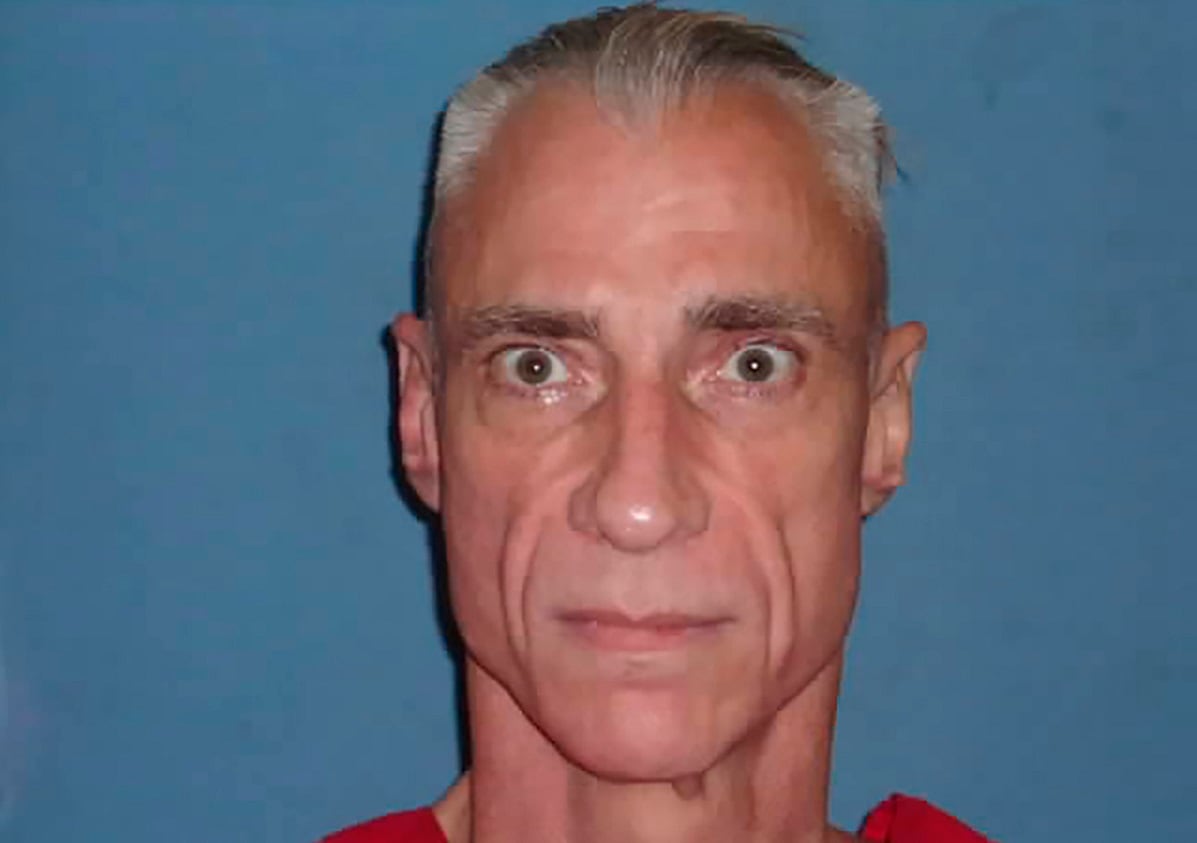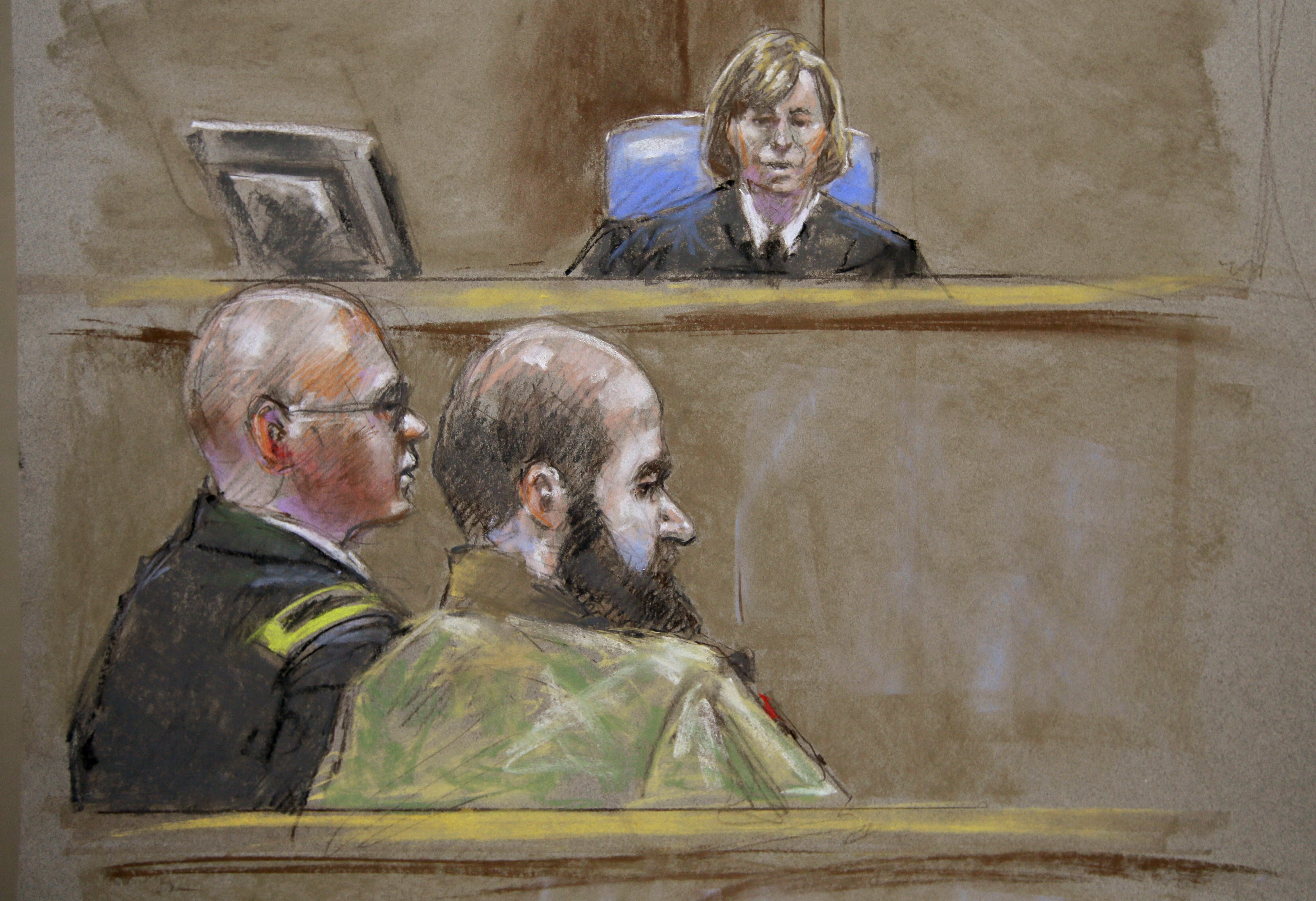A former soldier on military death row for the 2009 shooting rampage at Fort Hood, Texas, could face execution after the nation’s top military court hears the case.
Ex-Army Maj. Nidal Hasan, 52, is set for his case to stand before the Court of Appeals for the Armed Forces on Tuesday for what is largely considered the deadliest mass shooting ever on a United States military installation.
On Nov. 5, 2009, Hasan entered a readiness processing center at the Texas post and opened fire, killing 13 — including a pregnant soldier — and wounding 32. Hasan admitted to the shootings at his court-martial in 2013 and was sentenced to death.
If Hasan is put to death, it would be the first military execution since 1961, when ex-soldier John Bennett was hanged after being convicted for raping and attempting to kill a young girl.
The hearing Tuesday marks the next stage of the case in the drawn-out military appeals process. Regardless of the hearing’s outcome, it remains unclear if and when a decision on execution could be made.
“I would say a lot could happen,” Richard Dieter, the executive director of the Death Penalty Information Center, told Military Times.
Once a decision is reached, the case will likely be appealed to the Supreme Court, Dieter explained. The president must also weigh in with final say on the ex-soldier’s fate. As commander in chief, the president is required to confirm an execution sentence or commute it to what would likely be life in prison.
Exactly what President Joe Biden, who pledged to abolish federal capital punishment, would do remains unclear.
The Department of Justice imposed a moratorium in the summer of 2021 to pause federal execution orders, although it still is pressing for the death penalty in certain cases, according to the Associated Press. This followed the Trump administration’s resumption of federal, non-military executions in 2020 after a 17-year hiatus.
In 1983, the military appeals court ruled that the death penalty was unconstitutional, but that was soon reversed by President Ronald Reagan.
Hasan is one of four former service members currently on military death row at Fort Leavenworth, Kansas. In 2008, President George W. Bush signed off on the execution of ex-soldier Ronald Gray — on military death row since 1988 — but an execution of the serial rapist and murderer is unlikely to occur anytime soon due to the case becoming a legal roller coaster. Others who previously sat on military death row had their death sentences reduced by President Barack Obama during his final days in office.
Both sides at Hasan’s hearing will argue, among other legal issues, whether it was correct to let the former Army psychiatrist represent himself in the preceding trial, according to partly redacted court documents.
The Department of Defense, Congress and the FBI all conducted a series of investigations following the mass shooting.
“In many ways, the Fort Hood attack was a harbinger for the slow but steady increase in lone-actor terrorist attacks in the United States,” according to a 2018 report by George Washington University’s Program on Extremism.
“It forced the intelligence and law enforcement communities to re-evaluate counterterrorism processes and long-held assumptions about radicalization within the United States.”
RELATED

Soldiers today can still recall that day in 2009 when their lives were forever changed.
Former Army Staff Sgt. Patrick Zeigler, a two-time combat veteran, was shot four times in the attack and spent nearly a year recovering in various hospitals.
“He looked me straight in the eyes as he pointed the gun at me, and a split second later, I’m on the floor with a hole in my head,” he told the Killeen Daily Herald earlier this March.
Defense counsel for Hasan declined to be interviewed for this piece. The prosecution team was not immediately available for comment.
Jonathan is a staff writer and editor of the Early Bird Brief newsletter for Military Times. Follow him on Twitter @lehrfeld_media





